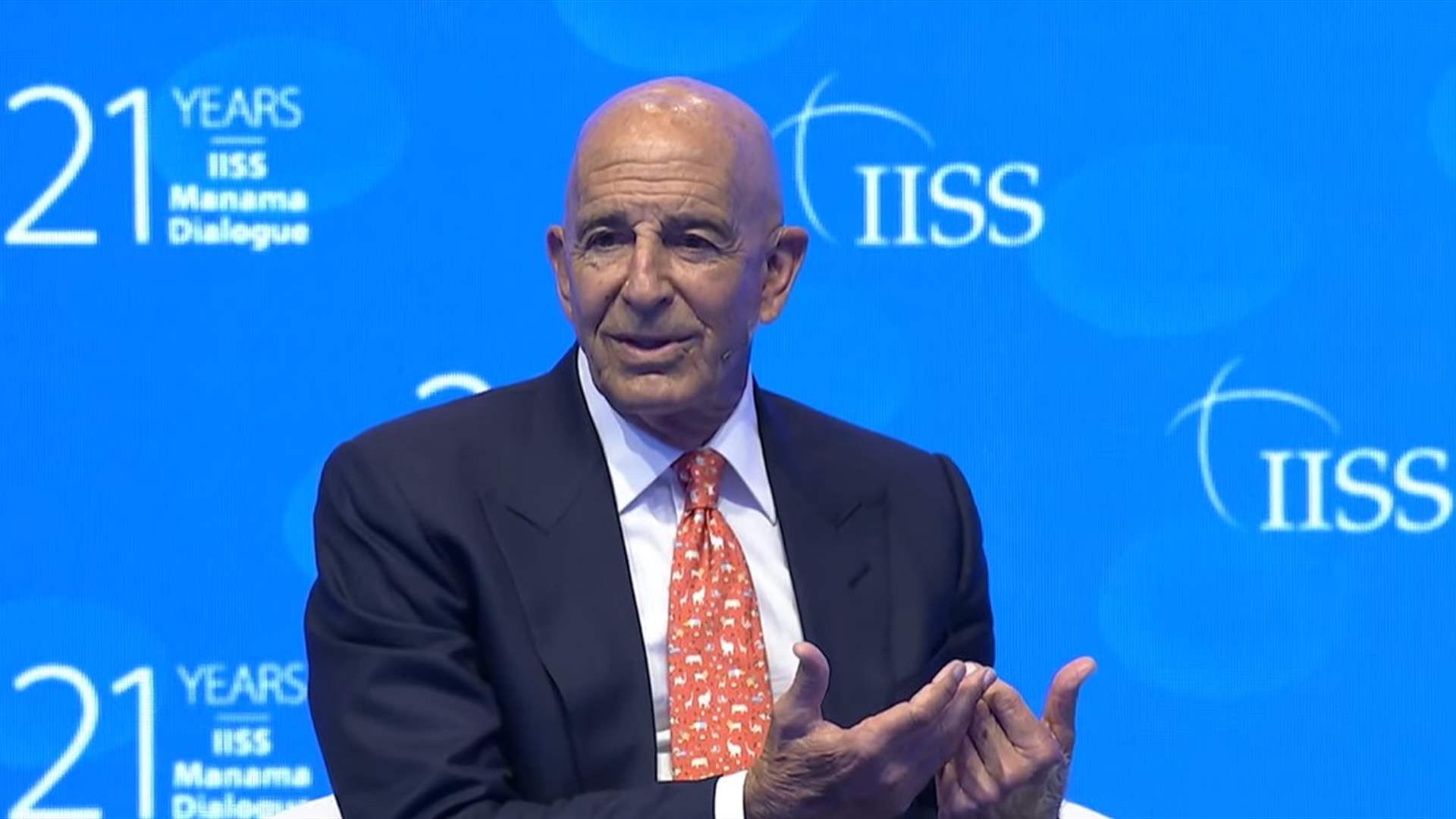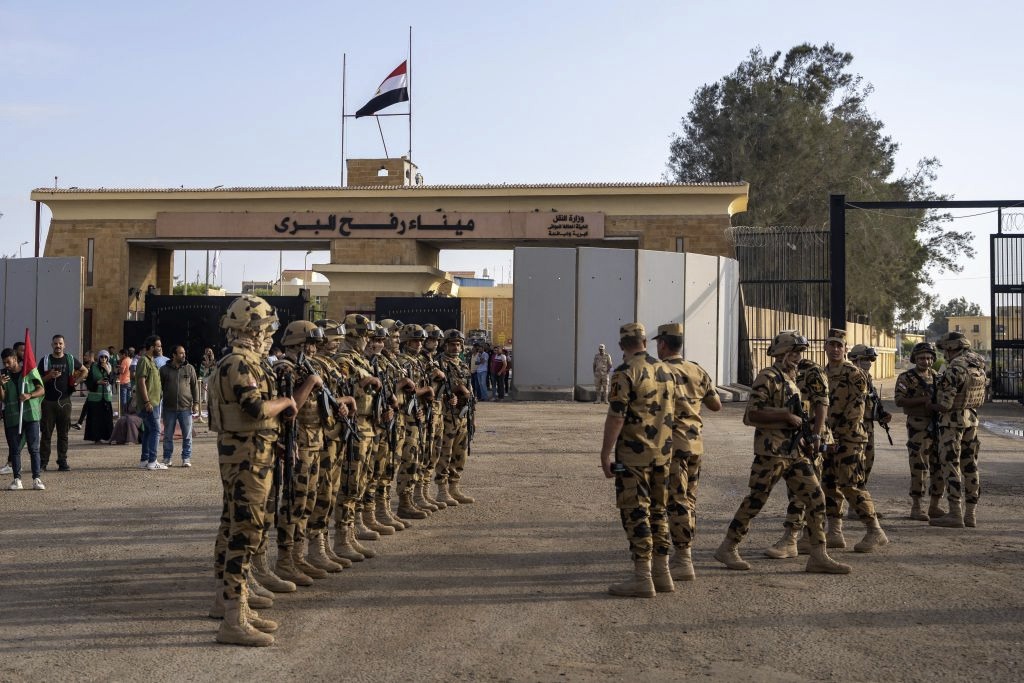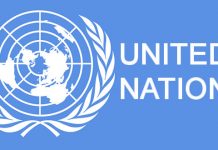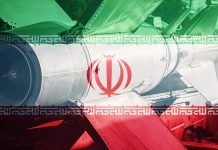مقالة مطولة تعري زدواجية مصر وصمت العالم بما يتعلق بالحرب في غزة
بسام الطويل/ معهد جايتستون/ 14 أيار 2024
(ترجمة موقع غوغل)
Egypt’s Duplicity, the World’s Silence
Bassam Tawil/Gatestone Institute/May 14, 2024
“A one-hundred-dollar bill does wonders with an Egyptian police officer at a Sinai roadblock who intercepts a truck packed with ‘pipes.'” — Efraim Inbar and Mordechai Kedar, BESA Center, January 22, 2009.
This is just another example of how, when Palestinians become victims of oppressive measures taken against them by their Arab brothers, the world does not care a bit. About a decade ago, when Egypt demolished dozens of houses and buildings in Rafah as part of a campaign to combat terrorism, no one said a word against the Egyptians — or even bothered to look.
If the Egyptians actually cared about the Palestinians, instead of blocking the entry of aid into the Gaza Strip, they could easily coordinate with Israel though alternative border crossings such as the nearby Kerem Shalom terminal.
Evidently the Egyptians would rather see the Gazans starve; then, the international community, as usual, would hold only Israel responsible.
That is the real problem: Where is the demand from the international community for Egypt to deliver aid to the Gaza Strip? Where are social media posts, the US college campus protests, and the op-eds condemning Egypt for deliberately withholding aid from Gaza’s Palestinians?
Why doesn’t the Biden administration pressure Egypt, and not just Israel, to allow aid to enter Gaza for the Palestinians?
Egypt has, in fact, been imposing a blockade on the Gaza Strip for the past 15 years…. Where are the protestors calling to stop the billions in aid to Egypt? They do not, of course, exist. The protests were never about helping Palestinians. They were always only about attacking Jews.
This is the same Egypt that been displacing thousands of Palestinians from Rafah after demolishing their homes and is now blocking aid to the Palestinians, that has piously decided to join the South African case against Israel at the ICJ.
Now that Israel is attempting to dismantle a terrorist group whose primary objective is the elimination of Israel, the Biden administration and many in the international community suddenly claim they are “outraged.”
If they really want to help the Palestinians, they could begin by filing cases against Egypt and the Arab states in the region that, for many decades, have turned their backs on the Palestinians and paid billions to their governments to keep on mistreating them.
If the Egyptians actually cared about the Palestinians, instead of blocking the entry of aid into the Gaza Strip, they could easily coordinate with Israel though alternative border crossings. Evidently the Egyptians would rather see the Gazans starve; then, the international community, as usual, would hold only Israel responsible.
On May 12, Egypt announced that it will support South Africa’s case in the International Court of Justice (ICJ), where Israel is accused of “genocide” for defending its citizens against Hamas’s murderers and rapists who invaded Israeli communities on October 7, 2023. The announcement came in response to the ongoing Israeli military operation against Hamas terrorists and bases, especially in the city of Rafah in the southern Gaza Strip.
If the South Africans had any decency, they would not only call out the Egyptians for being hypocrites and liars, they would also file a case with the ICJ against Egypt for its role in transforming the Gaza Strip into a weapons depot and continuing to deprive the Palestinians there of humanitarian aid.
Last week, Egypt refused to coordinate with Israel on the entry of aid into the Gaza Strip from the Rafah border crossing ostensibly due to Israel’s “unacceptable escalation,” reported Egypt’s state-affiliated Alqahera News satellite TV. The official also said that Egypt held Israel responsible for the deterioration of the situation in the Gaza Strip.
The Egyptians are, in reality, upset because Israeli forces on May 7 seized the Rafah border crossing between Egypt and the Gaza Strip.
For the past 15 years, the Palestinian side of the terminal was controlled by Hamas and profitably used by both sides to smuggle weapons and terrorists.
Over the past few decades, Egypt, for considerable remuneration, has allowed the smuggling of weapons into the Gaza Strip from its territory.
“The expectation that Egypt will put an end to the traffic in the tunnels under the Egyptian-Gaza border is not realistic – for strategic, political and domestic reasons,” according to a report by the Begin-Sadat Center for Strategic Studies at Bar-Ilan University.
The report, although published in 2009, remains as relevant as ever:
“At the strategic level, Egypt sees Israel as a competitor in the quest for hegemony in the Middle East, and has for years turned a blind eye to the arming of Hamas via the tunnels. Simply put, it had, and still has, an interest in bleeding Israel…
“The two-faced policy being pursued by the Mubarak administration also serves a useful purpose in domestic Egyptian politics. In contrast to Europeans and other foreigners, Egyptian citizens easily recognize and comprehend their government’s double-dealing. Everybody in Cairo understands that the government is facilitating the arming of Hamas; and turning a blind eye to the tunnels weakens the argument of the Islamic opposition that the government is cooperating with the Zionists. Moreover, curbing the traffic in the tunnels would worsen the economic situation in Gaza. Pictures of suffering in Gaza or of Palestinians climbing the fences to get into Egypt only help the Islamist opposition.
“Finally, Egypt’s double game is also result of a complex reality in the Sinai Peninsula. As with other Third World states, the Egyptian government is not fully in control of its territory. Thus, an international agreement on ending arms smuggling from Sinai into Gaza will face considerable problems of implementation, even if the Egyptian regime wants it to happen.
“Notably, most of the smuggling into Gaza is led by Egyptian Bedouins who live in the northern Sinai. These tribes do not speak Egyptian Arabic, they are not really an integral part of Egyptian culture and society, and they do not subscribe to Egyptian political ethos. They make a living by smuggling women and drugs to Israel, as well as arms, ammunition, and missiles to the Gaza Strip.
“Egyptian attempts to extend law and order to Bedouin areas have met armed resistance. Every time the Egyptian regime attempts to curtail the Bedouin smuggling activities, they carry out a terrorist attack on a Sinai resort, as has happened in Taba, Sharm el-Sheikh (twice), Nueiba, and Ras al-Satan. Such attacks negatively influence tourism to Egypt, an important source of income, and seem to be an effective way of “convincing” the Cairo authorities to live and let live.
“Bribery, an important element in the Egyptian ways of doing business, also facilitates the smuggling of weapons into Gaza. Low-paid Egyptian officials in Sinai can hardly resist hefty bribes. A one-hundred-dollar bill does wonders with an Egyptian police officer at a Sinai roadblock who intercepts a truck packed with ‘pipes.’ The likelihood that policemen at Egyptian checkpoints will stop taking bribes from trucks transferring arms to Gaza is very low – unless the Egyptian government decides to heavily punish such behavior. Only execution of smugglers could have a deterring effect, but such a determined Egyptian government behavior is also unlikely.”
By turning a blind eye to its widespread smuggling industry, Egypt significantly contributed to transforming the Hamas-ruled Gaza Strip into a major base for Islamist terrorism.
If the Egyptians actually cared about the Palestinians, instead of blocking the entry of aid into the Gaza Strip, they could easily coordinate with Israel though alternative border crossings such as the nearby Kerem Shalom terminal.
The Egyptians, however, are refusing to send aid to the Gaza Strip through the Kerem Shalom border crossing. For the past week, the Egyptians have been blocking aid to the Gaza Strip by refusing to coordinate the entry of truckloads through the Rafah and Kerem Shalom border crossings.
The Egyptians appear to be playing the “humanitarian aid card” to pressure Israel to stop the war on Hamas. They seem to believe, perhaps correctly, that by blocking the aid to the Palestinians, the humanitarian crisis in the Gaza Strip will escalate and the world will blame Israel, not Hamas or Egypt, for the ongoing suffering of the people there. Evidently the Egyptians would rather see the Gazans starve; then, the international community, as usual, would hold only Israel responsible.
That is the real problem: Where is the demand from the international community for Egypt to deliver aid to the Gaza Strip? Where are social media posts, the US college campus protests, and the op-eds condemning Egypt for deliberately withholding aid from Gaza’s Palestinians?
Why doesn’t the Biden administration pressure Egypt, and not just Israel, to allow aid to enter Gaza for the Palestinians?
Instead of pressuring Israel in order to avoid targeting Hamas terrorists in Rafah, US President Joe Biden could have already been on the phone with Egyptian President Abdel Fattah el-Sisi to urge him to assist his Palestinian brethren.
The Egyptians’ decision to join the South African case against Israel at the ICJ, as well as their decision to block aid to the Palestinians, indicate that they seem nervous about what Israel will uncover regarding weapons smuggling along Egypt’s border in the Rafah area.
The Egyptians may reasonably be worried that Israel will discover dozens of the smuggling tunnels that operated for many years under the nose of the Egyptian authorities, and were used to enlarge Hamas’s military capabilities in the Gaza Strip.
Where are the self-proclaimed pro-Palestinian protesters at college campuses in the US speaking out negatively about Egypt, which has been actively blocking aid as Israel is trying to get it in?
Egypt has, in fact, been imposing a blockade on the Gaza Strip for the past 15 years. Egypt allows only Gazans who pay exorbitant bribes to enter its territory, and shuts out everyone else, including those who want to flee the Gaza Strip. Where are the social media posts saying “F*** Egypt?” Where are the protestors calling to stop the billions in aid to Egypt?
They do not, of course, exist. The protests are never about helping Palestinians. They are always only about attacking Jews.
Do the anti-Israel protesters on US campuses know that half of the city of Rafah is located inside Egypt? Do they know that the Egyptians have demolished literally thousands of houses on the Egyptian side of the border for “security reasons”?
This is the same Egypt that been displacing thousands of Palestinians from Rafah after demolishing their homes and is now blocking aid to the Palestinians, that has piously decided to join the South African case against Israel at the ICJ.
According to a Human Rights Watch (HRW) report, on October 29, 2014, five days after an Islamist terror group, Ansar Beit al-Maqdis, attacked a checkpoint near Rafah, Egypt’s Prime Minister Ibrahim Mehleb issued a decree ordering the “eviction and isolation” of a buffer zone extending between five and seven kilometers from the border with Gaza and including all of Rafah.
The HRW report noted:
“Mehleb’s decree encompassed a much larger area than government officials had previously described in public statements about home demolitions, which the military had been conducting throughout 2013 and 2014. A map contained in the decree delineated a zone that extended along the entire 13-kilometer border [of Egypt] with Gaza and encompassed roughly 79 square kilometers of Egyptian territory. The [prime minister’s] decree ordered that those forced to leave be provided with ‘due compensation’ and alternative housing [presumably provided by Egypt].”
Between 2013 and 2014, according to HRW, the Egyptian military demolished at least 540 buildings. Most were within 500 meters of the border but some lay beyond a kilometer from the border. Between October 25, 2014, and August 15, 2015, satellite imagery analysis showed that the authorities demolished at least 2,715 additional buildings.
In total, the Egyptian military destroyed at least 3,255 residential, commercial and community buildings, including schools, mosques and hospitals. All of the destroyed buildings showed clear signs of having been deliberately demolished using a combination of heavy machinery and the uncontrolled detonation of high explosives.
The HRW report revealed:
“The start of demolitions began in July 2013, but journalists only began reporting on demolitions that September, describing them as the possible beginning of a buffer zone. Egyptian officials quoted in these media reports claimed that the buffer zone would protect Egypt’s national security by preventing Gaza-based armed groups from smuggling fighters and weapons into the Sinai and fueling the insurgency there…”
According to families who spoke with HRW, however, Egyptian authorities did not consult with Rafah residents before issuing the eviction decree on October 29, 2014, and did not give proper notice that residents would be forced to leave. Of 11 families interviewed, only five were warned of the impending eviction. Those families said they were warned by army patrols who told them that they had between 36 and 48 hours to leave. The authorities never handed out a written notice, they said. Six other families said that they received no notice, or heard about the eviction only from the news media or their neighbors.
One resident said that he tried to discuss with a group of neighbors how to organize a group action against the evictions, but another person with connections to the authorities warned him that if they did, they could face arrest and be accused of being terrorists and would lose their chance to receive compensation. Two residents said that they had heard of other residents being arrested on accusations of terrorism.
Um Mohamed, who lived with her three children in a three-story building that belonged to her husband’s family, said that she was sitting at a relative’s home almost 250 meters from the border on the afternoon of October 27, 2014, when an officer accompanied by 10 soldiers knocked on the door of a neighbor’s house.
Um Mohamed said the officer told the elderly woman who answered the door that they would blow up her house the following day. When the old woman responded that her family had been living there for their entire lives, the officer responded: “That’s it, there’s no time to talk. Move your things from this moment.”
Um Mohamed said they told the officer that there was no mobile phone coverage, which the authorities regularly disable as part of their counterinsurgency efforts, and they did not know how they would be able to tell their male relatives to come move their belongings. “Not a problem, we’ll blow it up with whatever’s inside, you don’t have to take a thing,” he said.
The elderly woman said a prayer and responded: “You’re kicking us out of our homeland.”
“Go look for another homeland. I don’t want to hear another word. I’ll be here tomorrow to blow up the house,” the officer said. A few days later, the Egyptian authorities cut the electricity and water supply and the telephone line to the house, Um Mohamed said, and shops in the area closed. Five days later, the army came to say they would demolish her home. Two days later, they did.
This is just another example of how, when Palestinians become victims of oppressive measures taken against them by their Arab brothers, the world does not care a bit. About a decade ago, when Egypt demolished dozens of houses and buildings in Rafah as part of a campaign to combat terrorism, no one said a word against the Egyptians — or even bothered to look.
Now that Israel is attempting to dismantle a terrorist group whose primary objective is the elimination of Israel, the Biden administration and many in the international community suddenly claim they are “outraged.”
If they really want to help the Palestinians, they could begin by filing cases against Egypt and the Arab states in the region that, for many decades, have turned their backs on the Palestinians and paid billions to their governments to keep on mistreating them.
*Bassam Tawil is a Muslim Arab based in the Middle East.
© 2024 Gatestone Institute. All rights reserved. The articles printed here do not necessarily reflect the views of the Editors or of Gatestone Institute. No part of the Gatestone website or any of its contents may be reproduced, copied or modified, without the prior written consent of Gatestone Institute.
مقالة مطولة تعري زدواجية مصر وصمت العالم بما يتعلق بالحرب في غزة
بسام الطويل/ معهد جايتستون/ 14 أيار 2024
(ترجمة موقع غوغل)
“فاتورة مائة دولار تصنع المعجزات مع ضابط شرطة مصري عند حاجز طريق في سيناء يعترض شاحنة محملة بـ”الأنابيب”. – إفرايم إنبار ومردخاي كيدار، مركز بيسا، 22 يناير/كانون الثاني 2009.
وهذا مجرد مثال آخر على أنه عندما يصبح الفلسطينيون ضحايا للإجراءات القمعية المتخذة ضدهم من قبل إخوانهم العرب، فإن العالم لا يهتم قليلاً. قبل نحو عقد من الزمان، عندما هدمت مصر العشرات من المنازل والمباني في رفح كجزء من حملة لمكافحة الإرهاب، لم يتلفظ أحد بكلمة واحدة ضد المصريين – أو حتى يكلف نفسه عناء النظر.
فإذا كان المصريون يهتمون حقاً بالفلسطينيين، فبدلاً من منع دخول المساعدات إلى قطاع غزة، لكان بإمكانهم بسهولة التنسيق مع إسرائيل من خلال معابر حدودية بديلة مثل معبر كرم أبو سالم القريب.
ومن الواضح أن المصريين يفضلون رؤية سكان غزة يتضورون جوعا؛ وحينها سيحمل المجتمع الدولي، كالعادة، إسرائيل وحدها المسؤولية.
تلك هي المشكلة الحقيقية: أين مطالبة المجتمع الدولي بإيصال المساعدات إلى قطاع غزة؟ أين المنشورات على وسائل التواصل الاجتماعي، والاحتجاجات في الحرم الجامعي الأمريكي، والمقالات الافتتاحية التي تدين مصر لتعمدها حجب المساعدات عن الفلسطينيين في غزة؟
لماذا لا تضغط إدارة بايدن على مصر، وليس فقط على إسرائيل، للسماح بدخول المساعدات إلى غزة للفلسطينيين؟
في الواقع، تفرض مصر حصارًا على قطاع غزة منذ 15 عامًا…. أين المتظاهرون الذين يطالبون بوقف المساعدات المليارية لمصر؟ إنهم غير موجودين بالطبع. لم تكن الاحتجاجات أبدًا تهدف إلى مساعدة الفلسطينيين. لقد كانوا دائمًا يتعلقون فقط بمهاجمة اليهود.
وهذه هي نفس مصر التي شردت آلاف الفلسطينيين من رفح بعد هدم منازلهم، وهي الآن تمنع المساعدات عن الفلسطينيين، والتي قررت الانضمام إلى قضية جنوب أفريقيا ضد إسرائيل في محكمة العدل الدولية.
والآن بعد أن تحاول إسرائيل تفكيك جماعة إرهابية هدفها الأساسي هو القضاء على إسرائيل، تزعم إدارة بايدن والعديد من المجتمع الدولي فجأة أنهم “غاضبون”.
إذا كانوا يريدون حقاً مساعدة الفلسطينيين، فيمكنهم البدء برفع قضايا ضد مصر والدول العربية في المنطقة التي أدارت ظهرها للفلسطينيين لعقود عديدة ودفعت المليارات لحكوماتها لمواصلة إساءة معاملتهم.
ولو كان المصريون يهتمون حقاً بالفلسطينيين، فبدلاً من منع دخول المساعدات إلى قطاع غزة، لكان بإمكانهم بسهولة التنسيق مع إسرائيل عبر معابر حدودية بديلة. ومن الواضح أن المصريين يفضلون رؤية سكان غزة يتضورون جوعا؛ وحينها سيحمل المجتمع الدولي، كالعادة، إسرائيل وحدها المسؤولية.
في 12 مايو، أعلنت مصر أنها ستدعم قضية جنوب أفريقيا في محكمة العدل الدولية، حيث تُتهم إسرائيل بارتكاب “إبادة جماعية” لدفاعها عن مواطنيها ضد قتلة ومغتصبي حماس الذين غزوا المجتمعات الإسرائيلية في 7 أكتوبر 2023. وجاء هذا الإعلان ردا على العملية العسكرية الإسرائيلية المستمرة ضد إرهابيي حركة حماس وقواعدها، خاصة في مدينة رفح جنوب قطاع غزة. لو كان لدى الجنوب أفريقيين أي أدب، لما وصفوا المصريين بالمنافقين والكذابين فحسب، بل كانوا سيرفعون أيضًا قضية أمام محكمة العدل الدولية ضد مصر لدورها في تحويل قطاع غزة إلى مستودع أسلحة ومواصلة حرمان الفلسطينيين من حقوقهم. الفلسطينيين هناك من المساعدات الإنسانية.
وفي الأسبوع الماضي، رفضت مصر التنسيق مع إسرائيل بشأن دخول المساعدات إلى قطاع غزة من معبر رفح الحدودي، ظاهريًا بسبب “التصعيد الإسرائيلي غير المقبول”، حسبما ذكرت قناة القاهرة نيوز الفضائية المصرية التابعة للدولة. وأضاف المسؤول أن مصر تحمل إسرائيل المسؤولية عن تدهور الوضع في قطاع غزة.
في الواقع، يشعر المصريون بالانزعاج لأن القوات الإسرائيلية استولت في 7 مايو/أيار على معبر رفح الحدودي بين مصر وقطاع غزة.
على مدار الخمسة عشر عامًا الماضية، كان الجانب الفلسطيني من المحطة خاضعًا لسيطرة حماس، وكان الجانبان يستخدمانه بشكل مربح لتهريب الأسلحة والإرهابيين.
على مدى العقود القليلة الماضية، سمحت مصر، مقابل أجر كبير، بتهريب الأسلحة إلى قطاع غزة من أراضيها.
وجاء في تقرير صادر عن مركز بيغن السادات للدراسات الاستراتيجية في جامعة باريت أن “التوقع بأن تضع مصر حداً لحركة المرور في الأنفاق تحت الحدود المصرية-غزة ليس واقعياً – لأسباب استراتيجية وسياسية ومحلية”. جامعة ايلان.
وعلى الرغم من نشر التقرير في عام 2009، إلا أنه يظل وثيق الصلة بالموضوع أكثر من أي وقت مضى:
“على المستوى الاستراتيجي، تنظر مصر إلى إسرائيل كمنافس لها في سعيها إلى الهيمنة في الشرق الأوسط، وقد غضت الطرف لسنوات عن تسليح حماس عبر الأنفاق. وببساطة، كان لديها، ولا تزال، مصلحة في نزيف إسرائيل..
“إن السياسة ذات الوجهين التي تنتهجها إدارة مبارك تخدم أيضاً غرضاً مفيداً في السياسة المصرية الداخلية. وعلى النقيض من الأوروبيين وغيرهم من الأجانب، فإن المواطنين المصريين يدركون ويفهمون بسهولة التعامل المزدوج لحكومتهم. والجميع في القاهرة يدركون أن الحكومة وتسهيل تسليح حماس، والتغاضي عن الأنفاق يضعف حجة المعارضة الإسلامية بأن الحكومة تتعاون مع الصهاينة. علاوة على ذلك، فإن كبح حركة المرور في الأنفاق من شأنه أن يؤدي إلى تفاقم الوضع الاقتصادي في غزة إن غزة أو الفلسطينيين الذين يتسلقون السياج للوصول إلى مصر لا يساعدون إلا المعارضة الإسلامية.
“وأخيرًا، فإن اللعبة المزدوجة التي تمارسها مصر هي أيضًا نتيجة للواقع المعقد في شبه جزيرة سيناء. فكما هو الحال مع دول العالم الثالث الأخرى، لا تسيطر الحكومة المصرية بشكل كامل على أراضيها. وبالتالي، يجب التوصل إلى اتفاق دولي بشأن إنهاء تهريب الأسلحة من سيناء إلى غزة”. وسوف تواجه مشاكل كبيرة في التنفيذ، حتى لو كان النظام المصري يريد ذلك أن يحدث.
“من الجدير بالذكر أن معظم عمليات التهريب إلى غزة يقودها البدو المصريون الذين يعيشون في شمال سيناء. وهذه القبائل لا تتحدث اللغة العربية المصرية، وليست في الحقيقة جزءًا لا يتجزأ من الثقافة والمجتمع المصري، ولا تشترك في السياسة المصرية”. إنهم يكسبون عيشهم من خلال تهريب النساء والمخدرات إلى إسرائيل، وكذلك الأسلحة والذخائر والصواريخ إلى قطاع غزة.
“إن المحاولات المصرية لبسط القانون والنظام في المناطق البدوية تواجه مقاومة مسلحة. وفي كل مرة يحاول النظام المصري الحد من أنشطة التهريب البدوية، فإنه ينفذ هجوماً إرهابياً على أحد منتجعات سيناء، كما حدث في طابا وشرم الشيخ”. (مرتين)، نويبع، ورأس الشيطان، تؤثر مثل هذه الهجمات سلبًا على السياحة في مصر، وهي مصدر مهم للدخل، ويبدو أنها وسيلة فعالة “لإقناع” السلطات في القاهرة بالعيش وترك العيش.
“الرشوة، وهي عنصر مهم في طرق ممارسة الأعمال التجارية المصرية، تسهل أيضًا تهريب الأسلحة إلى غزة. المسؤولون المصريون من ذوي الأجور المنخفضة في سيناء لا يستطيعون مقاومة الرشاوى الكبيرة. فاتورة مائة دولار تصنع العجائب مع ضابط شرطة مصري عند حاجز في سيناء يعترض شاحنة محملة بـ “الأنابيب”. إن احتمالات توقف رجال الشرطة عند نقاط التفتيش المصرية عن تلقي الرشاوى من الشاحنات التي تنقل الأسلحة إلى غزة ضئيلة للغاية ـ إلا إذا قررت الحكومة المصرية فرض عقوبات شديدة على مثل هذا السلوك من غير المحتمل أيضًا.” ومن خلال غض الطرف عن صناعة التهريب المنتشرة على نطاق واسع، ساهمت مصر بشكل كبير في تحويل قطاع غزة الذي تحكمه حماس إلى قاعدة رئيسية للإرهاب الإسلامي.
فإذا كان المصريون يهتمون حقاً بالفلسطينيين، فبدلاً من منع دخول المساعدات إلى قطاع غزة، لكان بإمكانهم بسهولة التنسيق مع إسرائيل من خلال معابر حدودية بديلة مثل معبر كرم أبو سالم القريب.
لكن المصريين يرفضون إرسال المساعدات إلى قطاع غزة عبر معبر كرم أبو سالم الحدودي. خلال الأسبوع الماضي، قام المصريون بمنع المساعدات إلى قطاع غزة من خلال رفض تنسيق دخول الشاحنات عبر معبري رفح وكرم أبو سالم الحدوديين.
ويبدو أن المصريين يستخدمون “ورقة المساعدات الإنسانية” للضغط على إسرائيل لوقف الحرب على حماس. ويبدو أنهم يعتقدون، وربما على حق، أن من خلال منع المساعدات عن الفلسطينيين، سوف تتصاعد الأزمة الإنسانية في قطاع غزة، وسوف يلوم العالم إسرائيل، وليس حماس أو مصر، على المعاناة المستمرة التي يعيشها الناس هناك. ومن الواضح أن المصريين يفضلون رؤية سكان غزة يتضورون جوعا؛ وحينها سيحمل المجتمع الدولي، كالعادة، إسرائيل وحدها المسؤولية.
تلك هي المشكلة الحقيقية: أين مطالبة المجتمع الدولي بإيصال المساعدات إلى قطاع غزة؟ أين المنشورات على وسائل التواصل الاجتماعي، والاحتجاجات في الحرم الجامعي الأمريكي، والمقالات الافتتاحية التي تدين مصر لتعمدها حجب المساعدات عن الفلسطينيين في غزة؟
لماذا لا تضغط إدارة بايدن على مصر، وليس فقط على إسرائيل، للسماح بدخول المساعدات إلى غزة للفلسطينيين؟
وبدلاً من الضغط على إسرائيل من أجل تجنب استهداف إرهابيي حماس في رفح، كان من الممكن أن يكون الرئيس الأمريكي جو بايدن قد أجرى مكالمة هاتفية بالفعل مع الرئيس المصري عبد الفتاح السيسي لحثه على مساعدة إخوانه الفلسطينيين.
ويشير قرار المصريين بالانضمام إلى قضية جنوب أفريقيا ضد إسرائيل في محكمة العدل الدولية، فضلاً عن قرارهم بمنع المساعدات عن الفلسطينيين، إلى أنهم يبدون متوترين بشأن ما ستكشف عنه إسرائيل فيما يتعلق بتهريب الأسلحة على طول الحدود المصرية في منطقة رفح.
وربما يشعر المصريون بالقلق من أن تكتشف إسرائيل العشرات من أنفاق التهريب التي كانت تعمل لسنوات عديدة تحت أنظار السلطات المصرية، والتي استخدمت لتوسيع قدرات حماس العسكرية في قطاع غزة.
أين هم المتظاهرون الذين نصبوا أنفسهم مؤيدين للفلسطينيين في الجامعات في الولايات المتحدة ويتحدثون بشكل سلبي عن مصر، التي كانت تمنع المساعدات بشكل نشط بينما تحاول إسرائيل إدخالها؟
وفي الواقع، تفرض مصر حصاراً على قطاع غزة منذ 15 عاماً. ولا تسمح مصر إلا لسكان غزة الذين يدفعون رشاوى باهظة بالدخول إلى أراضيها، وتمنع دخول أي شخص آخر، بما في ذلك أولئك الذين يريدون الفرار من قطاع غزة. أين منشورات وسائل التواصل الاجتماعي التي تقول “F*** Egypt”؟ أين المتظاهرون الذين يطالبون بوقف المساعدات المليارية لمصر؟
إنهم غير موجودين بالطبع. لا تهدف الاحتجاجات أبدًا إلى مساعدة الفلسطينيين. هم دائما يتعلقون فقط بمهاجمة اليهود.
هل يعلم المتظاهرون المناهضون لإسرائيل في الجامعات الأمريكية أن نصف مدينة رفح يقع داخل مصر؟ هل يعلمون أن المصريين هدموا حرفياً آلاف المنازل على الجانب المصري من الحدود “لأسباب أمنية”؟
وهذه هي نفس مصر التي شردت آلاف الفلسطينيين من رفح بعد هدم منازلهم، وهي الآن تمنع المساعدات عن الفلسطينيين، والتي قررت الانضمام إلى قضية جنوب أفريقيا ضد إسرائيل في محكمة العدل الدولية.
وفقا لتقرير هيومن رايتس ووتش، في 29 أكتوبر/تشرين الأول 2014، بعد خمسة أيام من قيام جماعة إرهابية إسلامية، أنصار بيت المقدس، بمهاجمة نقطة تفتيش بالقرب من رفح، أصدر رئيس الوزراء المصري إبراهيم محلب مرسوما يأمر “بإخلاء وإخلاء رفح”. “عزل” منطقة عازلة تمتد بين خمسة وسبعة كيلومترات من الحدود مع غزة وتشمل مدينة رفح بأكملها.
وأشار تقرير هيومن رايتس ووتش إلى: “يشمل مرسوم محلب مساحة أكبر بكثير مما وصفه المسؤولون الحكوميون سابقًا في تصريحاتهم العامة حول عمليات هدم المنازل، التي كان الجيش يقوم بها طوال عامي 2013 و2014. وقد حددت الخريطة الواردة في المرسوم منطقة تمتد على طول الحدود البالغ طولها 13 كيلومترًا. “[مصر] مع غزة وتضم ما يقرب من 79 كيلومترًا مربعًا من الأراضي المصرية. ويقضي قرار [رئيس الوزراء] بمنح أولئك الذين أجبروا على المغادرة “التعويض المستحق” والسكن البديل [الذي من المفترض أن تقدمه مصر]”.
بين عامي 2013 و2014، وفقاً لمنظمة هيومن رايتس ووتش، هدم الجيش المصري ما لا يقل عن 540 مبنى. وكان معظمها على بعد 500 متر من الحدود، لكن بعضها كان يقع على بعد كيلومتر واحد من الحدود. بين 25 أكتوبر/تشرين الأول 2014 و15 أغسطس/آب 2015، أظهر تحليل صور الأقمار الصناعية أن السلطات هدمت ما لا يقل عن 2715 مبنى إضافيا.
في المجمل، دمر الجيش المصري ما لا يقل عن 3255 مبنى سكنيًا وتجاريًا ومجتمعيًا، بما في ذلك المدارس والمساجد والمستشفيات. وأظهرت جميع المباني المدمرة علامات واضحة على أنه تم هدمها عمداً باستخدام مجموعة من الآلات الثقيلة والتفجير غير المنضبط للمتفجرات شديدة الانفجار.
وكشف تقرير هيومن رايتس ووتش:
“بدأت عمليات الهدم في يوليو/تموز 2013، لكن الصحفيين لم يبدأوا في الإبلاغ عن عمليات الهدم إلا في سبتمبر/أيلول من ذلك العام، واصفين إياها بأنها البداية المحتملة لمنطقة عازلة. وزعم المسؤولون المصريون المقتبسون في هذه التقارير الإعلامية أن المنطقة العازلة ستحمي الأمن القومي المصري عن طريق منع الجماعات المسلحة المتمركزة في غزة تقوم بتهريب المقاتلين والأسلحة إلى سيناء وتأجيج التمرد هناك…”
لكن وفقا للعائلات التي تحدثت مع هيومن رايتس ووتش، فإن السلطات المصرية لم تتشاور مع سكان رفح قبل إصدار مرسوم الإخلاء في 29 أكتوبر/تشرين الأول 2014، ولم تقدم إشعارا مناسبا بأن السكان سيضطرون إلى المغادرة. ومن بين 11 عائلة تمت مقابلتها، تم تحذير خمسة فقط من الإخلاء الوشيك. وقالت تلك العائلات إن دوريات الجيش حذرتها وأخبرتها أن أمامها ما بين 36 و48 ساعة للمغادرة. وقالوا إن السلطات لم تسلّم أي إشعار مكتوب. قالت 6 عائلات أخرى إنها لم تتلق أي إشعار، أو سمعت عن الإخلاء فقط من وسائل الإعلام أو من جيرانها.
قال أحد السكان إنه حاول أن يناقش مع مجموعة من الجيران كيفية تنظيم تحرك جماعي ضد عمليات الإخلاء، لكن شخصًا آخر على صلة بالسلطات حذره من أنهم إذا فعلوا ذلك، فقد يواجهون الاعتقال واتهامهم بأنهم إرهابيون وسيتعرضون للاعتقال. يفقدون فرصتهم في الحصول على التعويض. قال اثنان من السكان إنهما سمعا عن اعتقال سكان آخرين بتهم الإرهاب.
قالت أم محمد، التي كانت تعيش مع أطفالها الثلاثة في مبنى مكون من 3 طوابق تابع لعائلة زوجها، إنها كانت تجلس في منزل أحد أقاربها على بعد 250 مترا تقريبا من الحدود بعد ظهر يوم 27 أكتوبر/تشرين الأول 2014، عندما رافقها ضابط. طرق حوالي 10 جنود باب منزل أحد الجيران.
قالت أم محمد إن الضابط قال للسيدة المسنة التي فتحت الباب إنهم سيفجرون منزلها في اليوم التالي. وعندما ردت المرأة العجوز بأن عائلتها كانت تعيش هناك طوال حياتهم، رد الضابط: “خلاص، مفيش وقت للكلام. انقل أغراضك من هذه اللحظة”. قالت أم محمد إنهم أخبروا الضابط أنه لا توجد تغطية للهاتف المحمول، والتي تعطلها السلطات بانتظام كجزء من جهود مكافحة التمرد، وأنهم لا يعرفون كيف سيتمكنون من إخبار أقاربهم الذكور بالحضور لنقل متعلقاتهم. وقال: “ليست مشكلة، سوف نفجرها بكل ما بداخلها، ليس عليك أن تأخذ أي شيء”.
صلت المرأة المسنة وأجابت: “أنتم تطردوننا من وطننا”.
وقال الضابط: “اذهب وابحث عن وطن آخر. لا أريد أن أسمع كلمة أخرى. سأكون هنا غدا لتفجير المنزل”. وقالت أم محمد إنه بعد أيام قليلة، قطعت السلطات المصرية إمدادات الكهرباء والمياه وخط الهاتف عن المنزل، وأغلقت المتاجر في المنطقة أبوابها. وبعد خمسة أيام، جاء الجيش ليقول إنه سيهدم منزلها. وبعد يومين فعلوا ذلك.
وهذا مجرد مثال آخر على أنه عندما يصبح الفلسطينيون ضحايا للإجراءات القمعية المتخذة ضدهم من قبل إخوانهم العرب، فإن العالم لا يهتم قليلاً. قبل نحو عقد من الزمان، عندما هدمت مصر العشرات من المنازل والمباني في رفح كجزء من حملة لمكافحة الإرهاب، لم يتلفظ أحد بكلمة واحدة ضد المصريين – أو حتى يكلف نفسه عناء النظر.
والآن بعد أن تحاول إسرائيل تفكيك جماعة إرهابية هدفها الأساسي هو القضاء على إسرائيل، تزعم إدارة بايدن والعديد من المجتمع الدولي فجأة أنهم “غاضبون”.
إذا كانوا يريدون حقاً مساعدة الفلسطينيين، فيمكنهم البدء برفع قضايا ضد مصر والدول العربية في المنطقة التي أدارت ظهرها للفلسطينيين لعقود عديدة ودفعت المليارات لحكوماتها لمواصلة إساءة معاملتهم.
*بسام الطويل عربي مسلم مقيم في الشرق الأوسط.
© 2024 معهد جيتستون. كل الحقوق محفوظة. المقالات المطبوعة هنا لا تعكس بالضرورة آراء المحررين أو معهد جيتستون. لا يجوز إعادة إنتاج أو نسخ أو تعديل أي جزء من موقع Gatestone الإلكتروني أو أي من محتوياته دون الحصول على موافقة كتابية مسبقة من معهد Gatestone.





















